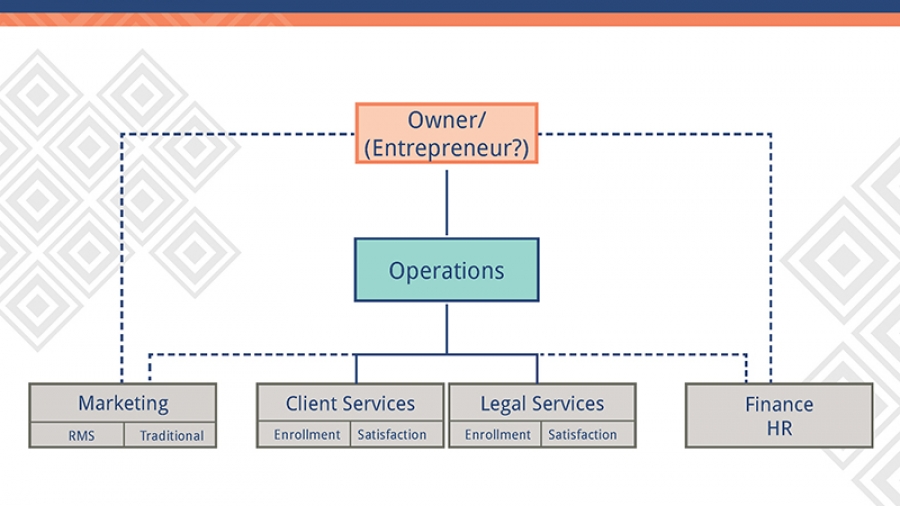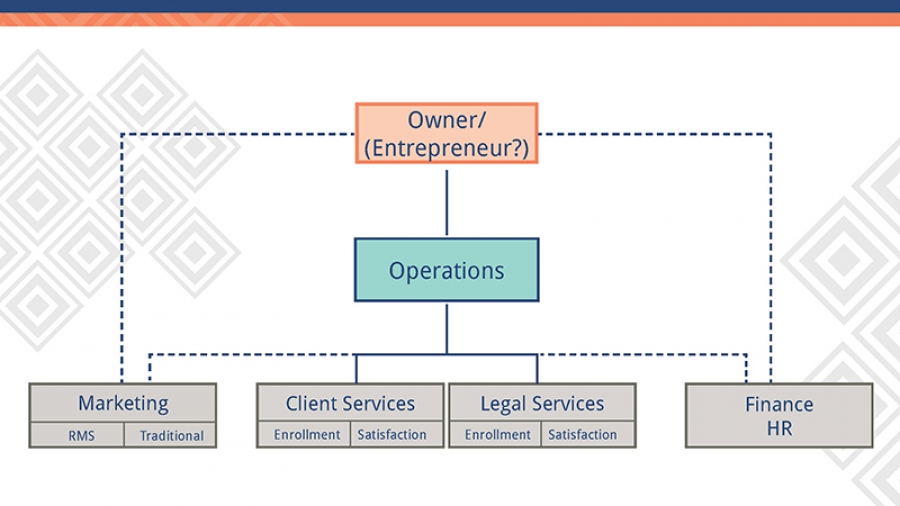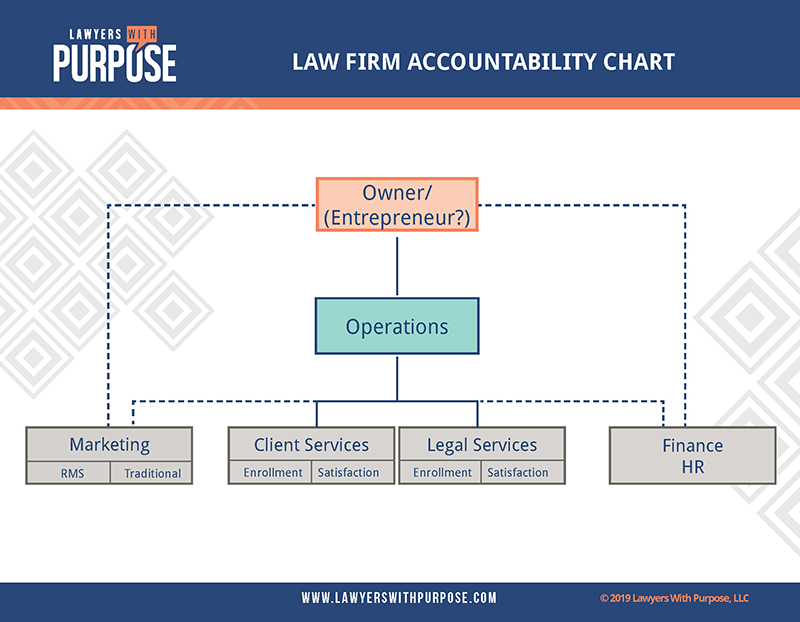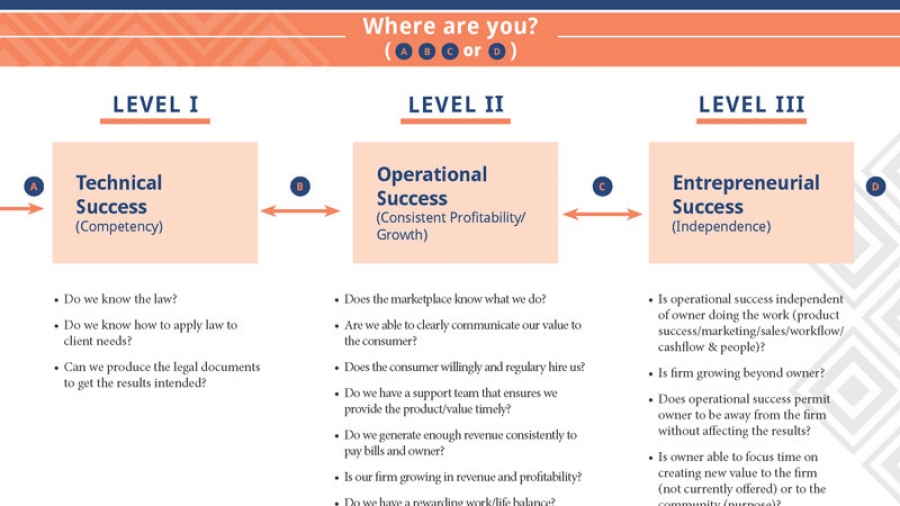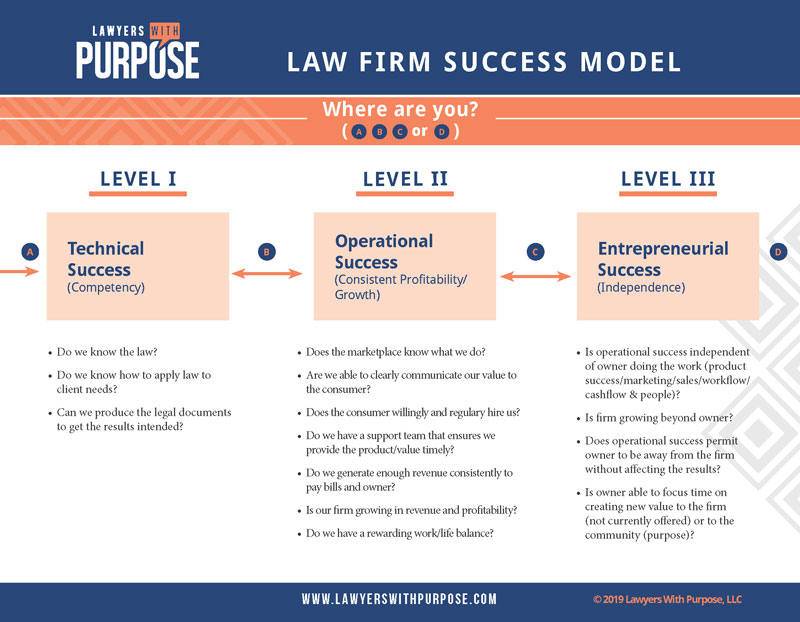The Hidden Cost of Messy Workflows – Delays, Stress, and Unhappy Clients
Estate planning practices manage some of the most important and sensitive work for clients: preparing for the future and protecting legacies. Having good estate planning law practice workflows is vital for smooth operations. However, in many firms, chaotic workflows undermine these efforts, resulting in missed deadlines, poor communication, and frustrated clients. These inefficiencies hinder your firm’s growth and negatively affect your client relationships.
The good news is that improving your practice workflows doesn’t have to be overwhelming. By taking a step back and implementing structured, repeatable processes, you can significantly boost your firm’s operational efficiency and, just as importantly, improve client satisfaction.
In this blog, we’ll explore how smart workflow management can transform your estate planning practice, reducing stress, preventing mistakes, and giving clients the smooth experience they deserve.
Why Workflows Matter – Connecting Internal Operations to the External Client Experience
In estate planning, your clients trust you with their most valuable personal and financial assets. A smooth, well-organized workflow ensures you meet their needs efficiently and without unnecessary delays. Clients don’t always see the intricate behind-the-scenes processes, but they feel the difference when your workflow is working as it should.
A disorganized firm, on the other hand, leads to confusion, missed deadlines, and inconsistent communication. These hiccups can shake client confidence, erode trust, and damage your reputation. Whether drafting a will, creating a trust, or handling estate tax issues, clear, well-documented workflows create a smoother process for your clients, reducing anxiety and building their trust in your services.
Common Challenges of Estate Planning Practices When it comes to Workflows
From Brianna’s extensive experience working with estate planning firms at LWP, she’s seen firsthand the challenges law firms face regarding workflow inefficiencies. Some of the most common issues include:
- “Who’s doing what?” Chaos – When task ownership isn’t clearly defined, confusion sets in. Work gets duplicated or neglected.
- Tribal Knowledge—Many firms rely on a few people who know how to get things done. If key staff members are unavailable, this can become a bottleneck.
- Tracking Tasks via Sticky Notes or Inboxes—Not having a centralized system can lead to missed details, important dates, or client requests falling through the cracks.
- Everything Is Reactive, Not Proactive—Without clear systems, your team will constantly be firefighting rather than staying ahead of the game.
- Inconsistent Client Experiences – One client gets prompt service, while another is left in the dark. This inconsistency damages client trust.
- Staff Burnout and High Turnover—When processes aren’t streamlined, your team is constantly under pressure, which can lead to burnout and high turnover.
- Bottlenecks Around Key Team Members – When a critical task or client interaction is in the hands of just one person, their absence can halt the whole process.
- Inconsistent Results – Document drafting and other repetitive tasks should follow a predictable timeline and process, not fluctuate drastically.
- Missed Deadlines—In estate planning, timing is everything. Missed deadlines can frustrate clients and result in lost business.
- Reinventing the Wheel – Even when handling similar matters (like drafting wills), firms may feel like starting from scratch each time because processes aren’t standardized.
Briana’s Advice – Key Workflow Management Tips from the Field
Briana has worked with hundreds of estate planning firms over the past 10+ years, helping them optimize their workflows. Here are her top workflow tips to get your firm on the right track:
- Map Out the Client Journey – Every estate planning matter follows a series of steps, from initial consultation to final document delivery. Mapping out the journey ensures everyone knows their role and when it’s their turn to act.
- Use Checklists and Templates – Standardize the drafting of documents such as wills and trusts by creating templates and checklists. These tools save time and ensure nothing is forgotten.
- Automate What You Can – Automate simple tasks like follow-up emails, document reminders, and intake forms. Automation frees up time for your team to focus on higher-value tasks.
- Build Systems, Not Reliant Teams – Successful firms rely on clear, repeatable systems that anyone can follow, not on key individuals. When workflows are in place, your team can handle matters even when a staff member is absent.
- Centralize Everything in One Platform – Use a case management system to centralize all documents, tasks, and client communications. This ensures your team can access real-time updates and track progress across all matters.
The LWP Approach – Tools, Templates, and Systems That Bring Order to the Chaos
At Lawyers With Purpose, we’ve spent over a decade working with estate planning firms to streamline their workflows. Our suite of tools is designed to address the unique challenges of estate planning practices, making it easier to stay organized, ensure client satisfaction, and boost profitability. Here’s how LWP’s tools can benefit your firm:
Color-Coded Calendaring System
One of our system’s most powerful features is the Color-Coded Calendaring System, which helps estate planning firms visually organize their schedules. This tool prioritizes tasks, minimizes scheduling conflicts, and ensures no client matter is overlooked. Your firm will operate more strategically and efficiently with color-coded blocks for drafting, review, client meetings, and other essential tasks.
Dashboards and Checklists
LWP’s Dashboards give you a bird’s-eye view of everything happening in your firm simultaneously. You’ll be able to track the status of every matter, from client intake to final document execution, and ensure nothing is slipping through the cracks. Checklists ensure your team follows every process step, keeping tasks organized and on time.
Workflow Mapping
One key to scaling a successful estate planning practice is having repeatable, reliable workflows. With LWP’s workflow mapping tools, you can create standardized processes for every matter, so your team knows exactly what needs to be done and when. This eliminates confusion and streamlines your operations.
Client Experience Payoff – Why Better Workflows = Happier, More Loyal Clients At Your Estate Planning Practice
Improving your firm’s workflows doesn’t just benefit your internal operations—it directly improves the client experience. Brianna has seen firsthand how organized workflows lead to:
- Faster Response Times: Clients get timely updates and responses, which makes them feel valued and supported.
- Fewer Errors: Streamlined workflows reduce mistakes, leading to more accurate documents and fewer revisions.
- Clear, Consistent Communication: Regular check-ins and status updates let clients know they are in good hands.
- Improved Trust: When your processes are organized and predictable, clients trust you to handle their most important matters professionally.
For example, Briana worked with a firm that had struggled with inconsistent intake processes. Clients often had to wait days for follow-ups, and communication was delayed. By implementing a standardized intake checklist and using LWP’s color-coded calendar to block out dedicated time for drafting and reviews, the firm improved onboarding times, reduced client wait times, and provided regular updates. As a result, client satisfaction improved dramatically, leading to increased referrals.
Taking Control of Your Practice with Lawyers With Purpose
Efficient workflows are the backbone of a successful estate planning practice. They ensure that your team stays on track, clients receive the attention they deserve, and your firm is positioned for growth without the stress of constant firefighting.
Whether you’re a solo practitioner or managing a growing team, taking the time to implement clear, consistent workflows will improve your internal operations and client satisfaction. Ready to take control of your practice and elevate your client service? Book a practice assessment to see how our systems can streamline your operations and drive success.









